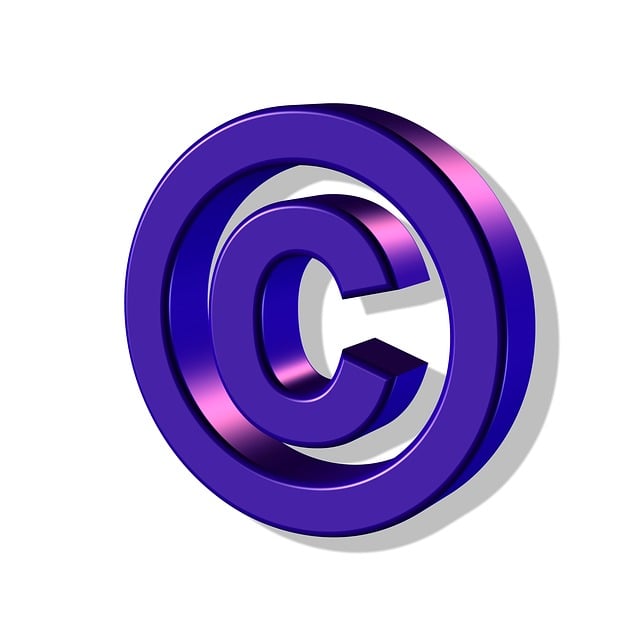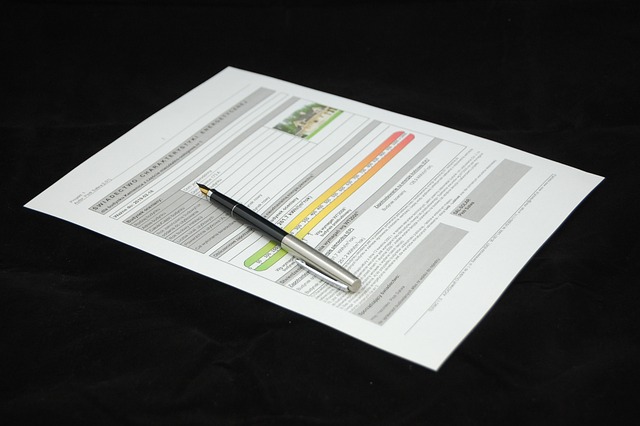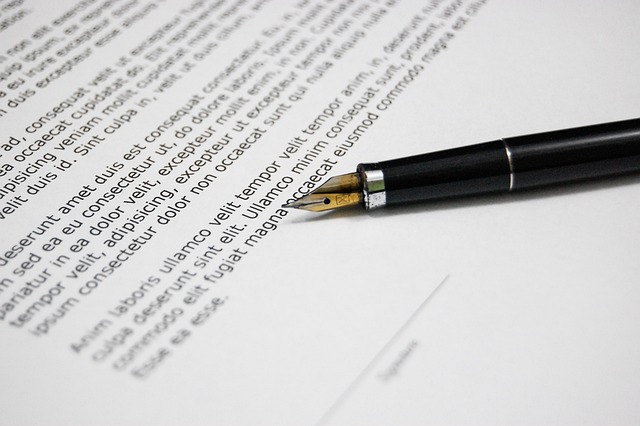In today's global economy, businesses need UK Intellectual Property Documents translation services to navigate complex IP laws across borders. The UK's robust protections vary by jurisdiction, necessitating expert translators who understand both legal nuances and specialized terminology. These services ensure accurate translations, preserving the validity of patents, trademarks, copyrights, and trade secrets in foreign languages, thereby facilitating global protection and fostering international innovation. Choosing a seasoned provider with linguistic and legal expertise is crucial for effective IP enforcement worldwide. Technological advancements like AI-driven translation tools further enhance precision and efficiency while meeting urgent global IP protection needs.
In today’s globalized marketplace, precise translations of intellectual property (IP) legal documents are paramount for securing international protection. This comprehensive guide explores the intricate landscape of UK intellectual property document types and the pivotal role accurate translation plays in navigating complex IP laws. From identifying challenges to choosing the right translation service and embracing industry best practices, we provide insights essential for successful global IP protection. Discover how technological advancements and future trends are revolutionizing international IP document handling.
- Understanding Global Intellectual Property Protection
- The Role of Accurate Translation in IP Law
- Challenges in Translating Legal Documents
- UK Intellectual Property Document Types
- Choosing the Right Translation Service
- Ensuring Quality and Precision in Translations
- Industry Best Practices for IP Translation
- Case Studies: Successful Global IP Protection
- Technological Advancements in Legal Translation
- Future Trends in International IP Document Handling
Understanding Global Intellectual Property Protection

In today’s globalised marketplace, businesses operating across borders must navigate complex intellectual property (IP) landscapes to safeguard their innovations and creations. Understanding international IP protection is paramount, especially when translating legal documents, as it ensures that rights are recognised and enforced consistently worldwide. The UK, being a prominent hub for international trade, offers robust IP protections, but these laws can be intricate and vary across jurisdictions.
Therefore, seeking professional translation services specialised in UK Intellectual Property Documents becomes essential. These services not only provide accurate language rendering but also ensure that the nuances of UK IP law are conveyed correctly in target languages. By partnering with experts who have a deep understanding of both legal systems, businesses can effectively protect their intellectual property globally, fostering innovation and ensuring their creations thrive on an international stage.
The Role of Accurate Translation in IP Law

In the global landscape of intellectual property (IP) law, precise and accurate translations play a pivotal role in ensuring legal protection for inventions, creations, and innovations worldwide. The UK, with its robust intellectual property framework, often requires international businesses to navigate complex legal documentation across borders. This is where professional translation services come into play, specifically tailored for UK Intellectual Property Documents.
Accurate translation goes beyond mere word-for-word substitution. It demands a deep understanding of the legal nuances and terminology specific to IP laws in both the source and target languages. Proficient translators with expertise in this domain can convey the exact intent, meaning, and scope of IP documents, ensuring their validity and enforceability in foreign jurisdictions. This is particularly critical when dealing with patents, trademarks, copyrights, and trade secrets, as even a subtle translation error could lead to legal complications or disputes.
Challenges in Translating Legal Documents

Translating legal documents, especially those related to intellectual property (IP) in the UK, comes with its unique set of challenges. The complex nature of IP law means that precise and accurate translations are crucial for global protection. Legal terminology is often specialized and can vary significantly between languages, making it difficult to find equivalent terms that convey the exact same meaning.
UK Intellectual Property Documents translation services must also consider cultural nuances and legal systems differences. What is considered a valid legal argument in one jurisdiction might not hold weight in another. Therefore, translators need to be well-versed in both the source and target languages and have a deep understanding of the legal frameworks involved. This ensures that the translated documents are not only linguistically correct but also legally sound, thereby facilitating effective global protection for intellectual property rights.
UK Intellectual Property Document Types

In the UK, intellectual property (IP) legal documents encompass a range of specialized paperwork, each requiring precise handling and accurate translation for effective global protection. These documents include patents, trade marks, copyrights, design rights, and licensing agreements. Accurate translations are vital to ensure these legal instruments maintain their validity and enforceability across borders.
Specialized UK Intellectual Property document types demand precise translation services that cater to their unique terminology and legal nuances. This is where professional translators with expertise in IP law play a critical role, ensuring that the translated documents not only convey the same meaning but also comply with local legal frameworks, thereby facilitating seamless global protection for intellectual property assets.
Choosing the Right Translation Service

When it comes to protecting your intellectual property (IP) globally, selecting a reliable and expert translation service is paramount. In the UK, where IP laws are stringent and diverse, understanding local nuances is key. Look for a service that specialises in UK Intellectual Property Documents translation, ensuring accuracy and compliance with legal requirements.
The right translator will have not just linguistic expertise but also a deep knowledge of IP law. They should be able to handle complex terminology and legal structures, maintaining the integrity of your documents. Additionally, consider their experience in dealing with international clients and their ability to adapt to different legal frameworks, ensuring your IP is protected effectively across borders.
Ensuring Quality and Precision in Translations

When it comes to IP legal documents, precision and accuracy are paramount. For effective global protection, relying on professional translation services is essential. At the heart of this process lies a rigorous quality assurance framework that ensures every word is translated with meticulous care. These UK Intellectual Property Documents translation services employ native speakers with expert legal knowledge, guaranteeing not just grammatical correctness but also an understanding of the nuances and technical terminology specific to intellectual property law.
Advanced technologies and industry-standard translation memory tools further enhance precision. They enable consistent formatting and ensure that previously translated terms are handled uniformly across documents. This not only saves time and reduces costs but also maintains coherence, a vital aspect when dealing with legal texts where even minor errors can have significant consequences.
Industry Best Practices for IP Translation

When it comes to UK Intellectual Property Documents translation services, adhering to industry best practices is paramount for ensuring accuracy and legal integrity. These documents, due to their complex nature and potential high-stakes consequences, demand meticulous attention to detail. A reputable translation service should employ qualified translators with specialized knowledge in IP law and a deep understanding of both the source and target languages.
Best practices also encompass the use of consistent terminology across all translated documents, strict adherence to formatting and stylistic guidelines, and rigorous quality assurance processes. Leveraging advanced translation technologies, such as machine translation combined with human review, can enhance efficiency without compromising precision. Additionally, staying updated on legal advancements and regulatory changes in IP laws worldwide is essential for providing up-to-date and compliant translations.
Case Studies: Successful Global IP Protection

Successful global IP protection relies on accurate and culturally sensitive translations of legal documents. Case studies demonstrate that companies who invest in professional UK Intellectual Property (IP) documents translation services have seen significant benefits. For instance, a tech startup based in the UK successfully expanded into Europe by ensuring their patent applications were perfectly translated, avoiding costly errors and potential legal pitfalls.
This strategy allowed them to navigate complex IP laws across multiple jurisdictions seamlessly, establishing a strong presence on the continent. Another example involves a pharmaceutical company that relied on expert translators to localise clinical trial documents for international trials. Accurate translations ensured compliance with local regulations, leading to faster approval processes and smoother global operations.
Technological Advancements in Legal Translation

Technological advancements have significantly transformed legal translation, particularly in the complex domain of intellectual property (IP) documentation. Advanced machine translation tools and artificial intelligence now play a pivotal role in providing accurate, consistent, and swift translations for UK Intellectual Property Documents. These technologies employ neural networks to understand context, idiomatic expressions, and legal jargon, ensuring precise interpretations that capture nuanced meanings.
Specialized IP translation services leverage these innovations alongside human expertise to deliver high-quality outcomes. Automation streamlines processes, reduces errors, and allows for faster turnaround times, making it feasible to handle the voluminous and often urgent translation needs of global IP protection. This blend of technology and professional judgment guarantees that legal documents maintain their integrity and effectiveness across borders.
Future Trends in International IP Document Handling

The future of international IP document handling lies in seamless, accurate translations that facilitate global protection for inventors and businesses. With the increasing globalization of markets, UK Intellectual Property Documents translation services will become even more critical. Advanced technologies like machine learning and AI-powered tools promise to revolutionize the process, offering speed, cost-efficiency, and near-perfect accuracy. These innovations can automate repetitive tasks, ensuring translators focus on complex linguistic nuances.
Additionally, there’s a growing demand for specialized IP translators who understand not just languages but also the legal intricacies involved. This trend necessitates continuous professional development and the adoption of industry best practices to keep up with evolving IP laws and terminology across different jurisdictions. As the digital landscape evolves, so too will the methods used to protect intellectual property globally, making accurate and efficient translation services a cornerstone of successful international IP strategies.
When navigating the complexities of global intellectual property protection, precise translations of legal documents are indispensable. By understanding the nuances of different jurisdictions, leveraging advanced technologies, and adhering to industry best practices, specialized translation services can ensure that IP owners effectively safeguard their innovations worldwide. UK Intellectual Property document types, for instance, require expert handling to meet international standards. Choosing a reputable service committed to quality and precision is paramount, as it directly impacts the success of global IP protection strategies.



